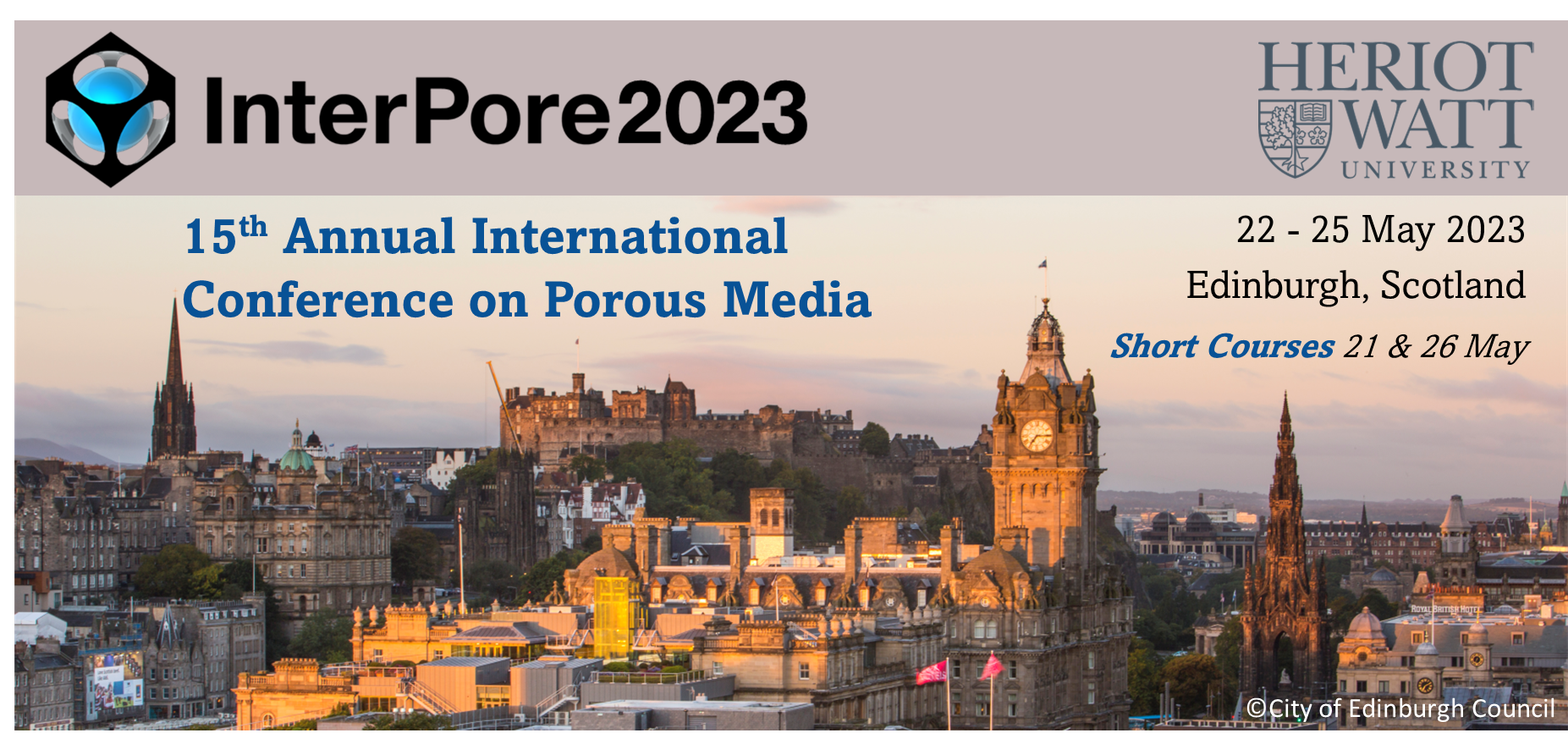Speaker
Description
The flow of non-Newtonian fluids in porous materials can be found in many industrial applications such as chemical engineering, subsurface engineering (de-contamination, energy production), and the food industry.
The relation between the shear stress and viscosity in non-Newtonian fluids is not linear and it is time-dependent, making it difficult to understand their behaviour. Due to the complex microstructure of pores in the porous media, the shear stress in each pore will be spatially variable, and thus the rheology of the non-Newtonian fluid would spatially vary along the flow pathways. Thus, it is very challenging to know how to upscale the shear-stress to estimate the upscaled porous medium-based rheology. Experimental characterization of non-Newtonian fluid flow inside three-dimensional porous media is not feasible; however, pore-scale modelling offers a versatile tool to understand and simulate non-Newtonian fluid flow in porous media. The pore-scale modelling offers a better understanding of fluids rheology, viscosity, thermostability and flow diversion.
The present study examines the feasibility of upscaling the non-Newtonian shear-thinning fluid bulk rheology to porous medium rheology using the pore-network modelling approach. Laboratory work was done to obtain the fluid’s bulk rheology. Then, a pore network model was constructed based on the Meter model equation and Hagen-Poiseuille law to simulate the porous medium rheology. The numerical results provided the pressure drop across the pore network for a given flow rate, fluids bulk rheology and pore-network geometrical and topological properties. As a result, the upscaled viscosity was back calculated using Darcy’s law and compared to the bulk rheology. Due to the high cost and time consumption of the laboratory and modelling work, it is essential to find a simple way to predict the porous medium rheology from the bulk rheology. Thus, based on several simulation scenarios for various pore-size distributions, permeability and flow rates, an empirical equation was proposed to predict the porous medium rheology based on the bulk rheology and porous medium properties.
| Participation | In-Person |
|---|---|
| Country | United Kingdom |
| MDPI Energies Student Poster Award | Yes, I would like to submit this presentation into the student poster award. |
| Acceptance of the Terms & Conditions | Click here to agree |







